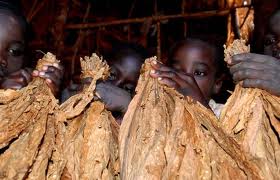
Investors in Africa’s agriculture sector need to be aware of the complexities surrounding land ownership.
Jumanne Abdallah Maghembe, Minister of Agriculture, Food Security and Cooperatives of Tanzania
Speaking during a session on agriculture at this month’s World Economic Forum on Africa, Tanzania’s agriculture minister, Prof Jumanne Maghembe, said that land is a worry for many people and that it needs to be managed properly.
Standard Bank recently warned that investors buying farmland in Africa need to do their homework before making purchases in a sector potentially fraught with political and emotional risks. “Investors need to be mindful of the fact that land in Africa is an emotive as well as a survival issue. The potential risks associated with these deals include cash-strapped local people losing not only their homes but also their source of food and future income as buyers secure the full rights to crops and land,” the bank said in a research report.
Maghembe explained that in Tanzania there are two laws that govern land. The Land Act covers the land that is managed by the central government; the Village Land Act states that land within the boundaries of a village belongs to the local community. “Therefore, when you are thinking about investments in land in Tanzania, it has to be an interplay between the investor, the village and the government. You have to work this very carefully,” he said.
He said that investors in Tanzania’s agriculture sector need to work together with outgrower farmers as well as smallholders to ensure that everyone benefits from the investment. There needs to be a win-win relationship for everyone involved.
According to Maghembe, smallholders must gradually grow with the larger farmers so that they can one day be able to start their own commercial operations.
Dyborn Chibonga, CEO of the National Smallholder Farmers’ Association of Malawi (NASFAM), who also participated in the session, said that smallholder farmers in Africa can play an important role to change the face of agriculture on the continent. He noted it is wrong to think that only large-scale farming can bring about change in African agriculture.
Chibonga’s comments came against the backdrop where Malawi has managed to produce a surplus of maize for a number of seasons through the subsidising of agricultural inputs such as seed and fertiliser.
According to Chibonga, smallholder farmers should not be left out of the picture as foreign governments and the private sector purchase large areas of land in Africa. “The concern is that the smallholder farmers are being left out of the picture, when we’ve proved . . . that smallholder farmers can be part of the equation. They need to be involved in the value chain. What we should be doing rather is to look at smallholder farmers being involved all the way from the policies to the markets, so that they can produce and be able to value-add . . . [the products] that is required either by the foreign governments or big industry.
He also mentioned that land purchases should be more transparent. “We just hear that the new friend of Africa, China, has bought certain tracts of land. You don’t know how much they bought. You don’t know where it is. You don’t know the conditions attached to that purchase.”



